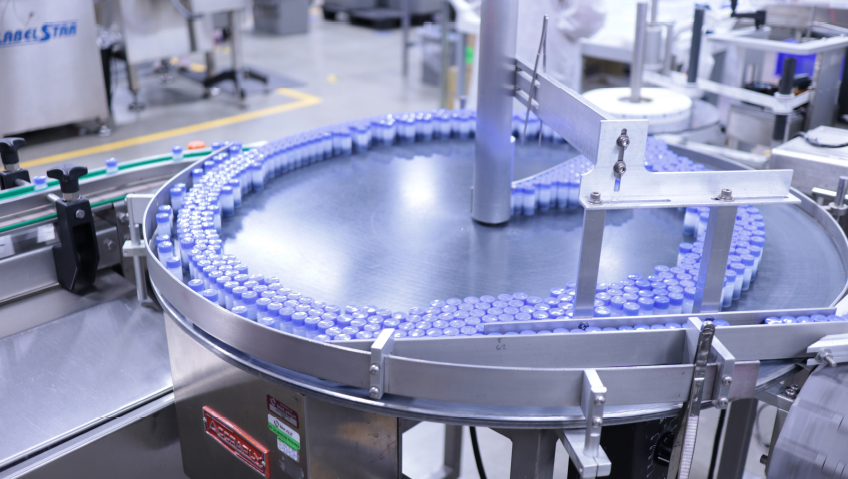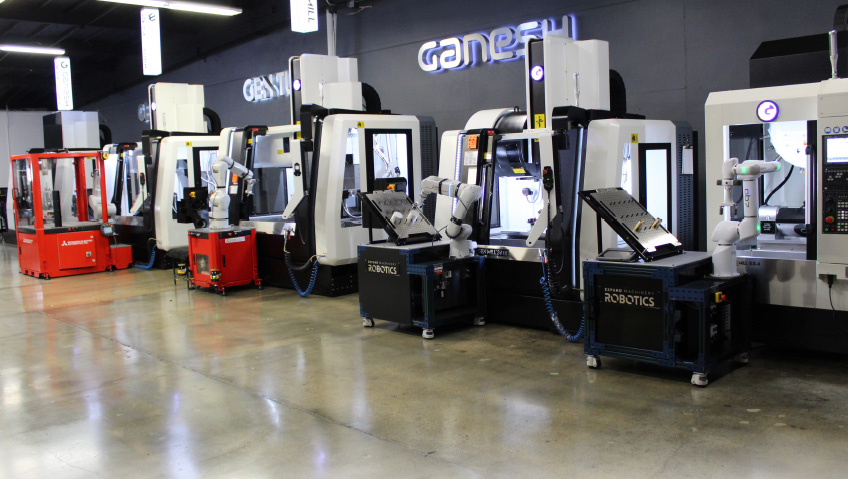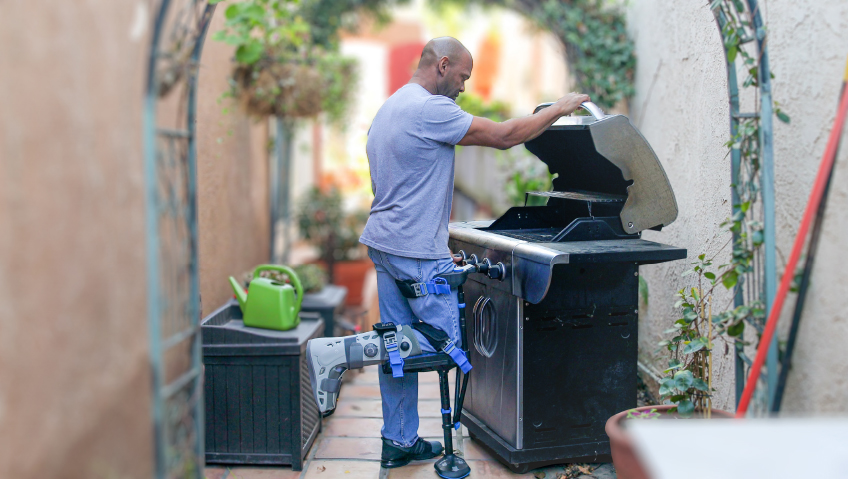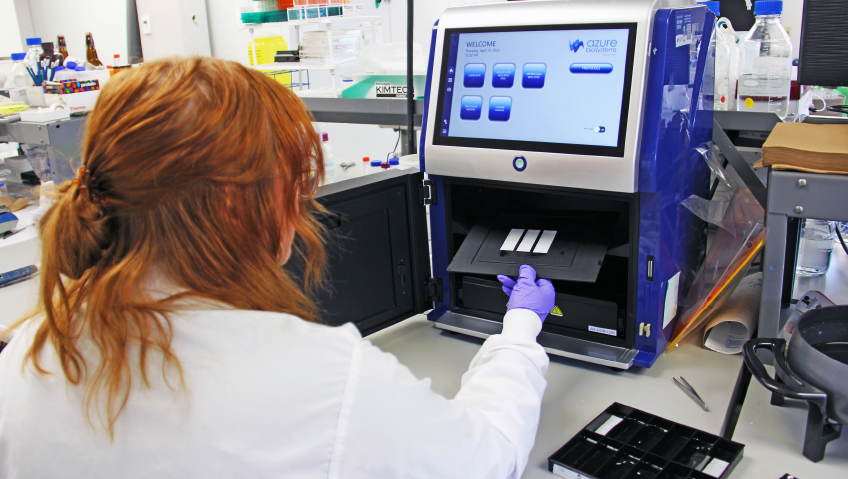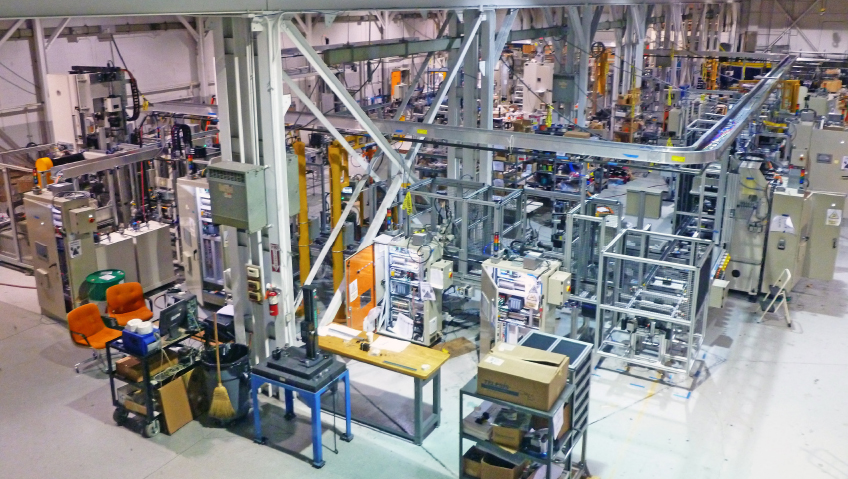With the goal of enhancing—and even saving—people’s lives by offering quick, accurate detection of infectious diseases, bioLytical Laboratories Inc., of Richmond, B.C., makes and markets the INSTI® HIV-1/2 Antibody Test and other infectious diseases tests. This HIV test is backed by regulatory approvals from around the world, including the U.S. FDA, Health Canada, and the European CE mark.
INSTI® HIV tests are innovative, user-friendly diagnostic kits for HIV infection diagnosis and are the fastest HIV rapid diagnostic assays available, taking only 60 seconds to read. The INSTI® HIV-1/ 2 Antibody Test is a quick and qualitative in vitro test that can be used to find antibodies against Type 1 or Type 2 HIV in human plasma, fingerstick blood, or whole blood.
“The U.S. is our largest customer, and even the Department of Health is using our tests and loves them,” says Rob Mackie, CEO. “And there are so many more applications to use them.”
Utilizing a self-test means not only the freedom to test when and where you want (without supervision, as the test comes with full instructions!) but also receiving your results instantly, allowing for faster access to medical intervention.
“We’ve come a long, long way. In the beginning, self-testing had a tough time gaining traction, because with every reactive result, it was felt that we needed to ensure an officially monitored link to care,” Mackie says. “But that didn’t work because no one would get tested, and they were losing the fight to HIV.”
Most people generally don’t randomly get tested for HIV (unless they’re in a high-risk population) because HIV still carries the stigma of promiscuity, he adds, which is why having a self-test for different diseases is so vital.
“When it comes to Hepatitis C, once you find out you have it via symptoms, it’s often too late. But if you find out through a test, there’s a 12-week treatment that used to be over $70,000 but now some treatments are under $5,000, and for 95 percent of people, the treatment works, and you’re rid of it forever.”
There are also many ways to contract Hepatitis C, which is why it’s so important that people have access to a test that can save their lives.
“One thing the pandemic taught us is to take our healthcare into our own hands,” Mackie says. “No one’s going to come and save you… you’ve got to take that responsibility now.”
The pandemic also meant three years of significantly reduced testing for HIV, pushing advancement in testing rates back many years, he says, with numbers similar to those seen 10 years ago. “Almost all resources for testing were put toward one thing, and that was COVID-19. Additionally, everyone was locked at home, personal encounters went up, and awareness of rapid testing, STIs, and knowing your status went down.”
Mackie explains that it is estimated that 60 percent or more of the disease’s spread comes from people who don’t know they have it. Upon learning you have HIV, you immediately go on antiretrovirals to suppress your CD 4 count, not only to avoid infecting someone new but to freeze your virus at a state where you don’t have flu-like symptoms, you’re not feeling lethargic all day, and symptoms won’t turn into AIDS, the actual disease.
“If every single person knew their status, and the people that were positive were on treatment, HIV would go away, but we just can’t seem to get a handle on that,” Mackie says. “The reason we’re now doing this chlamydia/gonorrhea duplex test is because, according to WHO, Africa spends close to $30 billion a year on healthcare, and people can’t get an appointment to see the doctor because STIs are taking up all the appointments with chlamydia and gonorrhea.”
There are one million new sexually transmitted infections every day—over 374 million new infections last year—so with everyone knowing their status regarding chlamydia, gonorrhea, or any STI, they’re far less likely to have an encounter and put themselves in a position to spread it, he adds.
“We know chlamydia and gonorrhea aren’t killers, but they’re so painful and uncomfortable that you will wait in a lineup at the doctor’s office to get your antibiotics or whatever’s going to get you pain-free, and it’s clogging their whole system,” Mackie says.
While there are new products and tests available now which weren’t before, nobody knew about them until bioLytical got test approval in Canada, and even now, unless the company spends a significant amount of time increasing awareness, many people still won’t know unless they’re in a high-risk community, actively doing something that puts them at risk.
“Our focus on the STI market with the RI (registered intermediary) status product is going to be just huge for our company because there’s such a need for it,” Mackie says.
As with many products, educating the general public is key to gaining trust and sharing knowledge. Today’s political climate, unfortunately, has fostered suspicion of information from scientific sources that is challenging to combat.
“We have to educate people, but it’s hard to educate people now because they don’t know what to believe,” Mackie says. “It’s not about them being ignorant, because I think they have valid reasons to be suspicious due to the world we live in, and that’s disappointing. But it’s hard for companies like us.”
bioLytical has high-quality products, he adds, and being Canadian-based means working under stringent regulations and audits from Health Canada.
“We have no choice but to put out a high-quality product, and that’s why everyone’s coming to us,” says Mackie. “We don’t have any of this controversy following us or any data giving false results.”
As much damage as the ongoing pandemic has caused, it has also forced companies—and governments—to learn. bioLytical, for instance, spent a million dollars trying to make its original platform work for COVID. When the company couldn’t get it to work for less than $25 a test, it developed a new platform out of necessity, and that platform will now be utilized against STIs.
While bioLytical already has approval for its Hepatitis C test in Europe, there are upcoming additional approvals, such as inclusion into the Australian Registry of Therapeutic Goods (ARTG) and the WHO’s pre-qualification, which opens up all tenders in the developing world, including Africa and India, where NGOs working in those areas often can’t afford to buy their own product.
And receiving the upcoming self-test HIV approval in the United States will be a huge triumph for the company.
“HIV is more prevalent now than it was 10 years ago, with a significant increase over the last three years, largely attributed to the decrease in testing due to the pandemic,” says Mackie. “We’re still getting about 1.5 million infections a year globally, and we’re sitting at about 39 million people living with HIV. The U.S. has about 1.2 million infections total, a significant amount for a rich country.”
Catching up on years of missed testing and escalating cases seems daunting, but bioLytical has the skills and experience to handle the challenges.
“We’re a medium-sized company, and we’re growing into a good-sized company,” says Mackie. “And we’re nimble because we’re private; we’re not a public company controlled by a board. We obviously answer to a board, but I’m in the office every day, and I chair the board, so we don’t have to go outside for decisions.”
Keeping everything in-house is also important, he adds. “We don’t get to a point in product development where we have to negotiate something with someone that makes it not even economically feasible. If you have one component you have to buy from someone else, and they see you have this huge market and just need their one component, you can only imagine how hard it is to negotiate. We control our own destiny by having everything made in-house and decisions all made in-house.”
This also means controlling quality. “We’re only as good as the last test we made, and we have such a good reputation for quality that we wouldn’t put out our COVID test early until it was solid,” he says.
The company knew it was missing the market but refused to compromise its 20 years of quality by trying to take advantage of “low-hanging fruit,” instead staying the course and putting out a high-quality product. “For the sake of our integrity and quality, it’s very risky for us to outsource,” Mackie says.
This all results in high company morale as well, he adds, with staff feeling deep satisfaction from accomplishing everything on their own. “When you’re doing everything—from the science to the clinical trials to all the production to the solution manufacturing—no one else gets any of the credit when you do something good.”
Doing good also includes philanthropic work, such as working with the REACH program in Canada on syphilis and HIV; providing hurricane-relief funding; and continually spreading knowledge and awareness of the importance of self-testing across the world.
“There’s nothing pretty about Hep C,” says Mackie. “When it rears its head, you’re going to have a painful death on dialysis and cost the taxpayer a quarter of a million dollars. Or you can find out early—with no symptoms—that you have Hep C, and you just need this treatment, and it can save you, as opposed to not knowing and fully developing Hep C. What a waste! No one survives that.”
Again, he says, education is key to understanding that it can be caught early and treated completely.
“We have this great dream, and it’s not even a ‘suppression’ of the disease like HIV. If you’re rid of Hep C, it’s out of your blood. It’s quite amazing. There should be lineups to get heavily tested, but I don’t think there are lineups or even much awareness of the disease.”
Unfortunately, people will look for any reason to not get tested, he adds, even though bioLytical’s rapid tests are highly reliable, involve a mere finger prick, and give almost immediate results.
“I have four kids and when I retired, I could have done anything, but when the technology of bioLytical came across my table, I thought, ‘what a great legacy, to try to do well while doing good,’” shares Mackie. “I just thought that if we could be successful, it would sure be a cool thing to be successful at, and who knew it would go way beyond HIV. We’re getting close to 50 million in tests and probably have stopped 20 million new infections. That’s pretty awesome.”

